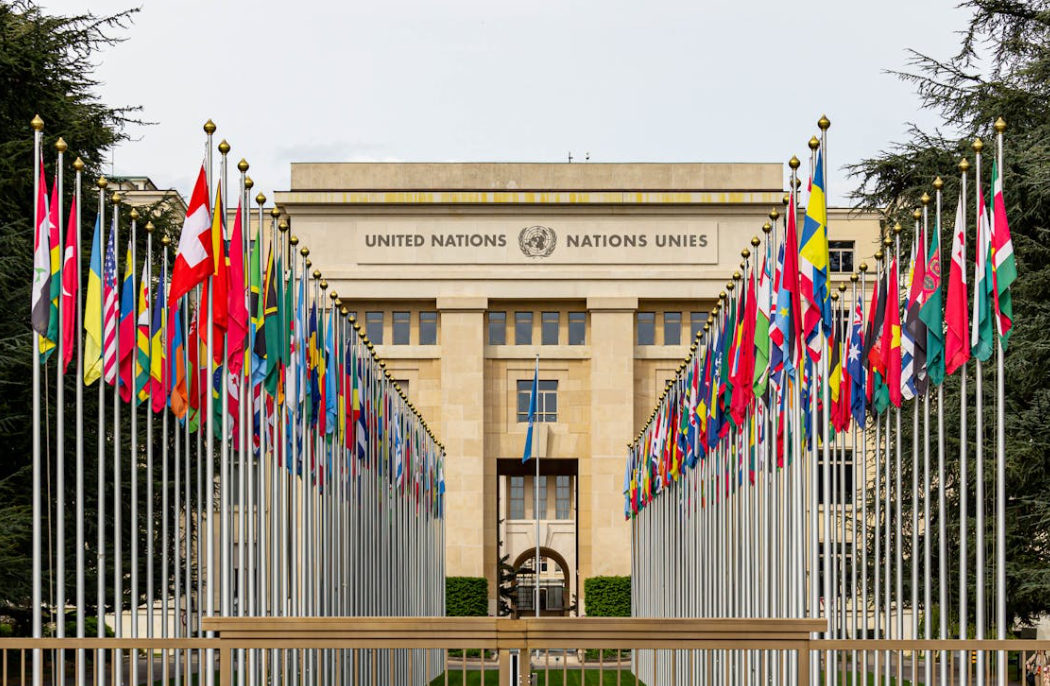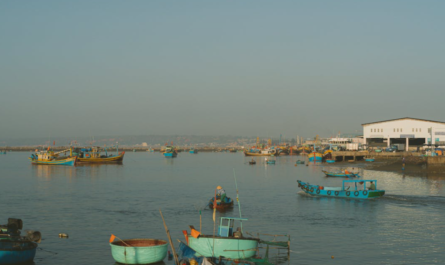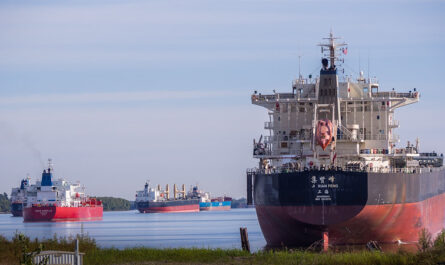The Atlantic Ocean is not just a vast body of water—it is a dynamic arena where legal, political, economic, and environmental interests converge. The United Nations Convention on the Law of the Sea (UNCLOS), often hailed as the “constitution for the oceans,” has fundamentally influenced how Atlantic coastal states and international actors govern and interact with this critical region. By providing a comprehensive legal framework that governs maritime rights and responsibilities, UNCLOS has redefined national jurisdictions, dispute resolution, resource exploitation, and environmental stewardship in the Atlantic.
1. Historical Context and Evolution of UNCLOS
UNCLOS was developed over several decades as a response to the growing need for a standardized set of rules to manage the world’s oceans. Negotiated between the 1970s and 1980s and finally adopted in 1982, the Convention was designed to harmonize national laws with international law regarding ocean use. Before UNCLOS, maritime governance was marked by a patchwork of bilateral agreements and customary practices that often led to disputes over territorial waters and resource rights. The establishment of UNCLOS brought clarity and predictability to issues such as the delineation of territorial seas, contiguous zones, exclusive economic zones (EEZs), and continental shelves.
For Atlantic coastal states—from the eastern seaboard of North America to the western shores of Europe and Africa—the adoption of UNCLOS provided an unprecedented level of legal certainty. It not only codified their rights to resources and security but also imposed obligations for the protection of the marine environment and the sustainable use of ocean resources.
2. Key Legal Provisions Influencing Atlantic Governance
UNCLOS contains several critical components that have a direct impact on how Atlantic governance is structured:
Territorial Seas and Contiguous Zones
UNCLOS defines a coastal state’s territorial sea as extending up to 12 nautical miles from its baseline. Within this zone, the state exercises full sovereignty, subject only to the right of innocent passage for foreign vessels. This clear demarcation is vital in the Atlantic, where numerous nations’ interests overlap. Beyond the territorial sea lies the contiguous zone, up to 24 nautical miles, where states can enforce laws concerning customs, immigration, and pollution.
Exclusive Economic Zones (EEZs)
One of the most significant contributions of UNCLOS is the establishment of the Exclusive Economic Zone. Within 200 nautical miles from the baseline, coastal states have exclusive rights to exploit and manage natural resources, both living and non-living. This provision has had profound implications in the Atlantic, where fishing rights, oil and gas exploration, and mineral extraction have become central to national economies. By defining the boundaries within which a state can operate, UNCLOS has helped to prevent conflicts and promote sustainable resource management.
Continental Shelf Rights
UNCLOS also recognizes the rights of coastal states over their continental shelves, which may extend beyond the EEZ if the natural prolongation of the land territory continues underwater. This provision has enabled Atlantic nations to secure rights over vast underwater areas, enhancing their ability to develop and manage underwater resources.
Dispute Resolution Mechanisms
The Convention establishes procedures for peaceful dispute resolution, including negotiation, mediation, and arbitration. For the Atlantic region, which has witnessed numerous maritime disputes over boundaries and resource claims, these mechanisms provide a structured and legally binding process for settling conflicts. This framework has been instrumental in maintaining stability and preventing the escalation of tensions between rival states.
3. Maritime Boundaries and Jurisdiction in the Atlantic
One of the most visible impacts of UNCLOS is in the demarcation of maritime boundaries. In the Atlantic, where states such as the United States, Canada, Brazil, and several European and African nations share proximity, clear boundaries are essential to prevent overlapping claims. UNCLOS guidelines ensure that each state’s rights and responsibilities are clearly defined.
For instance, the Atlantic’s EEZs have become focal points in disputes over fishing rights and resource exploration. In regions where the EEZs of two countries may meet, UNCLOS provides for equitable solutions, such as joint development zones. This collaborative approach has been seen in several Atlantic border areas, where shared management of resources has led to increased cooperation and reduced the potential for conflict.
4. Resource Management and Economic Implications
Fisheries Management
Atlantic fisheries are among the most productive in the world, but they are also highly susceptible to overfishing and environmental degradation. UNCLOS’s provisions on EEZs have enabled states to regulate fishing activities within their territories, leading to improved resource management. By establishing clear jurisdiction over fishing grounds, coastal states can implement quotas, monitor compliance, and work with international organizations to ensure that fish stocks are managed sustainably. This is particularly crucial in the Atlantic, where migratory species cross international boundaries, requiring coordinated management efforts.
Hydrocarbon and Mineral Exploration
The Atlantic Ocean is rich in oil, gas, and mineral resources. UNCLOS provides the legal framework for states to explore and exploit these resources within their EEZs and continental shelves. This has not only boosted national economies but also attracted international investment. However, the Convention also mandates that such activities must be conducted in a manner that minimizes environmental impact, ensuring that resource extraction does not come at the cost of marine biodiversity or the health of the ocean ecosystem.
Economic Zones as Areas of Strategic Importance
The delineation of EEZs has also transformed the Atlantic into a zone of strategic economic importance. Countries have used their maritime entitlements to negotiate trade agreements, secure access to critical resources, and invest in maritime infrastructure. UNCLOS, by clarifying these rights, has played a pivotal role in shaping the economic landscape of the Atlantic, fostering an environment where nations can confidently invest in long-term projects and partnerships.
5. Environmental Protection and Sustainable Development
Environmental concerns are at the heart of UNCLOS. The Convention not only outlines how states can exploit resources but also imposes responsibilities to protect the marine environment. This dual approach is particularly important in the Atlantic, where industrial activities, climate change, and pollution pose significant threats to marine ecosystems.
Pollution Prevention and Control
UNCLOS obliges states to prevent, reduce, and control pollution of the marine environment from various sources, including ships, offshore installations, and land-based activities. In the Atlantic, this has led to the implementation of stringent regulations aimed at reducing oil spills, chemical discharges, and plastic waste. The framework established by UNCLOS encourages cooperation among states to monitor and enforce these standards, thereby enhancing the overall health of the marine ecosystem.
Marine Biodiversity Conservation
The Atlantic is home to a wide array of marine species, many of which are endangered due to overexploitation and habitat destruction. UNCLOS encourages states to establish marine protected areas (MPAs) and adopt measures to conserve biodiversity. By providing a legal basis for these initiatives, the Convention has helped to foster international collaboration on conservation projects and sustainable management practices. These efforts are critical to maintaining the ecological balance of the Atlantic and ensuring that its natural resources remain viable for future generations.
Climate Change and Ocean Governance
As global climate change continues to impact ocean temperatures, sea levels, and weather patterns, UNCLOS’s role in environmental governance becomes even more significant. The Convention supports research and the sharing of scientific data on climate impacts, which is crucial for developing adaptive strategies. Atlantic states, many of which are vulnerable to sea-level rise and extreme weather events, rely on the collaborative framework of UNCLOS to address these emerging challenges collectively.
6. Security, Regional Cooperation, and Governance
Enhancing Maritime Security
UNCLOS has also contributed to the security architecture in the Atlantic by establishing legal parameters for the use of maritime zones. Coastal states are empowered to monitor and control activities within their waters, which includes countering smuggling, piracy, and other illicit activities. The clarity provided by UNCLOS has enabled Atlantic nations to develop robust maritime security policies and collaborate on regional security initiatives, thereby ensuring safer navigation and commerce in the region.
Promoting International Cooperation
The governance model outlined by UNCLOS emphasizes the importance of international cooperation. In the Atlantic, this has translated into numerous bilateral and multilateral agreements on issues ranging from search and rescue operations to environmental monitoring and resource sharing. Regional bodies such as the International Maritime Organization (IMO) and various bilateral commissions use UNCLOS as a common legal foundation to build trust and foster collaboration. This cooperation is essential in an ocean as vast and interconnected as the Atlantic, where the actions of one state can have far-reaching effects on others.
Dispute Resolution and Legal Stability
One of the cornerstones of UNCLOS is its dispute resolution mechanism, which provides a legal pathway for resolving conflicts peacefully. For Atlantic governance, this means that disagreements over boundaries, resource rights, or environmental issues can be addressed in a structured and impartial forum. By reducing the risk of unilateral actions and armed conflict, UNCLOS has significantly contributed to the stability and predictability of maritime relations in the Atlantic.
7. Challenges and Future Prospects
Despite the robust framework provided by UNCLOS, several challenges persist. The increasing demand for marine resources, coupled with environmental degradation and geopolitical tensions, continues to test the limits of the Convention. In the Atlantic, disputes over fishing quotas, hydrocarbon exploration rights, and maritime boundaries remain contentious. Additionally, climate change is altering marine ecosystems and exacerbating the vulnerability of coastal communities, demanding even greater international cooperation and adaptive management strategies.
Looking ahead, the evolution of Atlantic governance will depend on the ability of states to innovate within the framework of UNCLOS. This includes developing new mechanisms for sharing resources, enhancing environmental protections, and leveraging technology to monitor and manage maritime activities more effectively. The growing importance of blue economy initiatives—focusing on sustainable use of ocean resources—provides an opportunity to reimagine Atlantic governance in a way that balances economic growth with environmental stewardship.
Adapting to Emerging Technologies
Advancements in satellite monitoring, marine robotics, and data analytics offer new avenues for enforcing UNCLOS provisions and ensuring compliance. Atlantic states are increasingly harnessing these technologies to better monitor their waters, enforce maritime laws, and collect scientific data critical for informed decision-making. Integrating these technological solutions with existing governance frameworks will be essential to addressing the complex challenges of the 21st century.
Strengthening Multilateral Institutions
The future of Atlantic governance may also lie in reinforcing the institutions that support UNCLOS. Strengthening bodies like the International Tribunal for the Law of the Sea and enhancing cooperation through regional organizations can help mediate conflicts and promote sustainable management practices. Continued investment in these institutions is vital for ensuring that the legal framework adapts to new challenges while maintaining stability and fairness in maritime affairs.
8. Conclusion
The United Nations Convention on the Law of the Sea has played a transformative role in shaping Atlantic governance. By defining clear maritime boundaries, securing rights over natural resources, establishing dispute resolution mechanisms, and mandating environmental protections, UNCLOS has created a framework that supports both national interests and global cooperation.
In the Atlantic region, where diverse geopolitical, economic, and environmental interests intersect, UNCLOS has provided the legal certainty needed to manage shared resources and promote sustainable development. It has helped reduce conflicts, enhanced maritime security, and fostered a spirit of collaboration among coastal states.
While challenges remain—ranging from resource disputes to the impacts of climate change—the robust framework of UNCLOS offers a pathway to a more stable and cooperative future in Atlantic governance. As technological innovations and new environmental challenges emerge, the continued evolution and adaptation of UNCLOS will be critical in ensuring that the Atlantic remains a source of prosperity, security, and ecological sustainability for all nations bordering its vast expanse.
Ultimately, UNCLOS serves as a cornerstone for international maritime law, underscoring the importance of cooperative governance in an increasingly interconnected world. Its influence on Atlantic governance is a testament to the power of multilateral agreements in shaping global policies and fostering an environment of peace and sustainable development.



